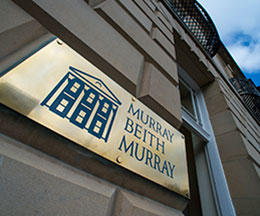
The Main Points So far…
Murray Beith Murray LLP is a leading Scottish private client law firm.
For 175 years we have specialised in meeting the legal, financial and administrative needs of individuals and families, family trusts, charities and private companies.
 From 1 April 2015 the Land and Buildings Transaction Tax (“LBTT”) regime came into effect imposing a duty on commercial tenants to submit a return every three years. The first cycle of these three yearly returns arose in April 2018, and significant penalties can be incurred for late submission or failure to submit.
From 1 April 2015 the Land and Buildings Transaction Tax (“LBTT”) regime came into effect imposing a duty on commercial tenants to submit a return every three years. The first cycle of these three yearly returns arose in April 2018, and significant penalties can be incurred for late submission or failure to submit.

Murray Beith Murray Partner, Andrew Paterson, writes in The Scotsman today (Monday 26 November). Read the full article below:

For many people, the most valuable asset in their estate on death is their residential property. The value of the property, particularly in cities like Edinburgh, can mean that otherwise small estates become subject to Inheritance Tax. It is important to report an accurate value of the property to HMRC for Inheritance Tax purposes, with fluctuations in the market making this quite challenging for non-professionals.

The recent case of Graham v RCC [2018] UKFT 306 (TC) has resulted in a promising outcome regarding business property relief (BPR) for taxpayers that have property businesses. The taxpayer in this case successfully argued her business was more of a family-run hotel rather than a mere holiday letting, thereby qualifying for this important Inheritance Tax relief. The additional services she offered were the key in distinguishing the business from being classed as investment property.
